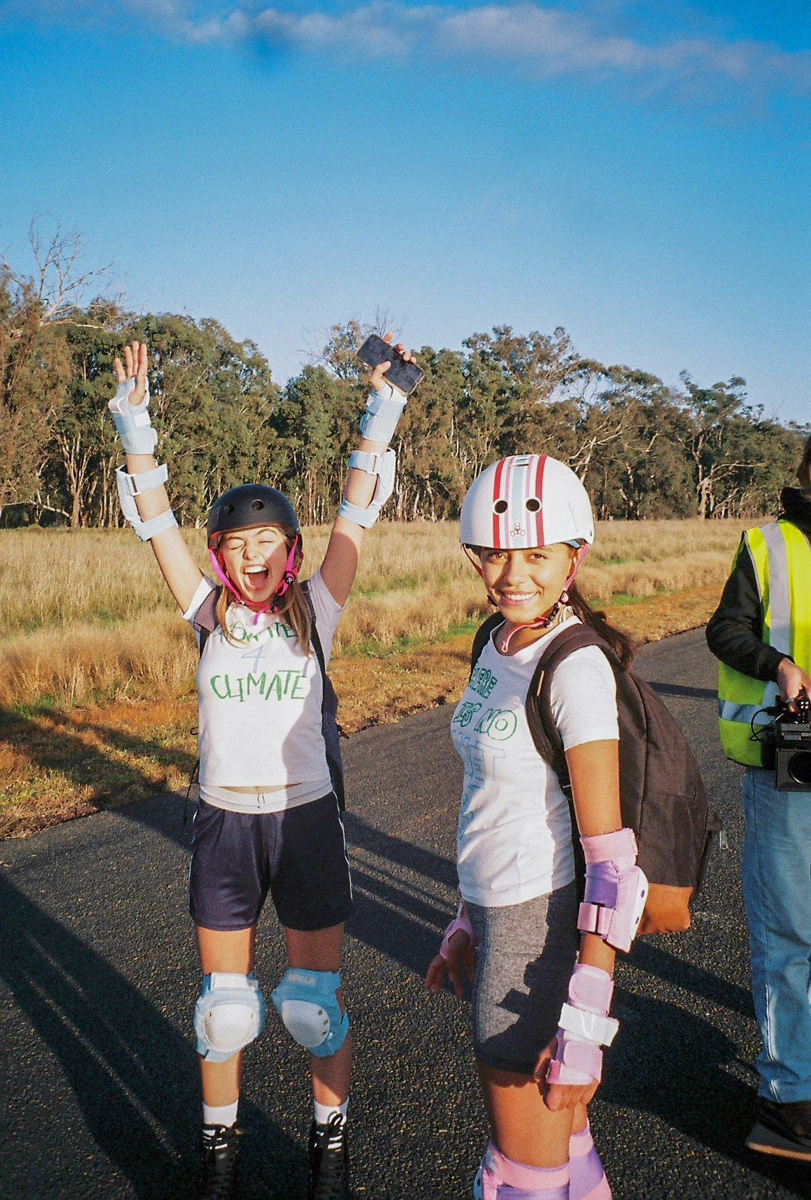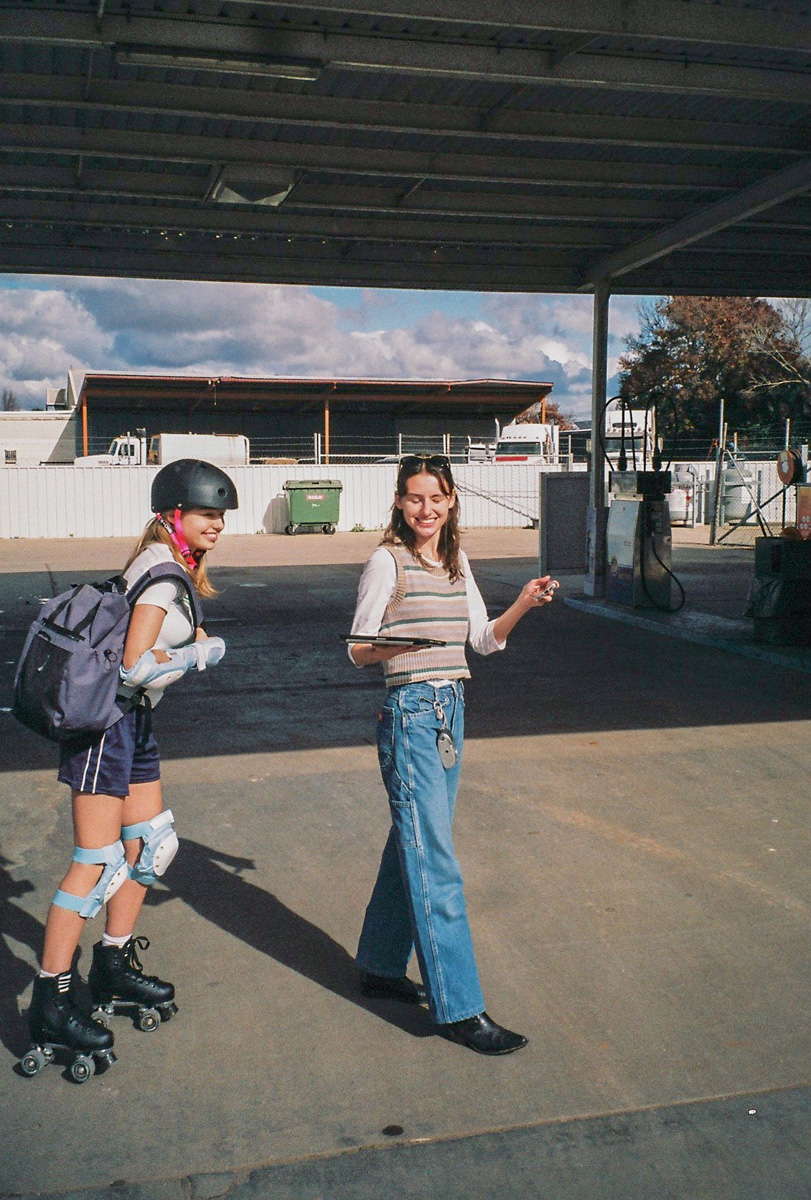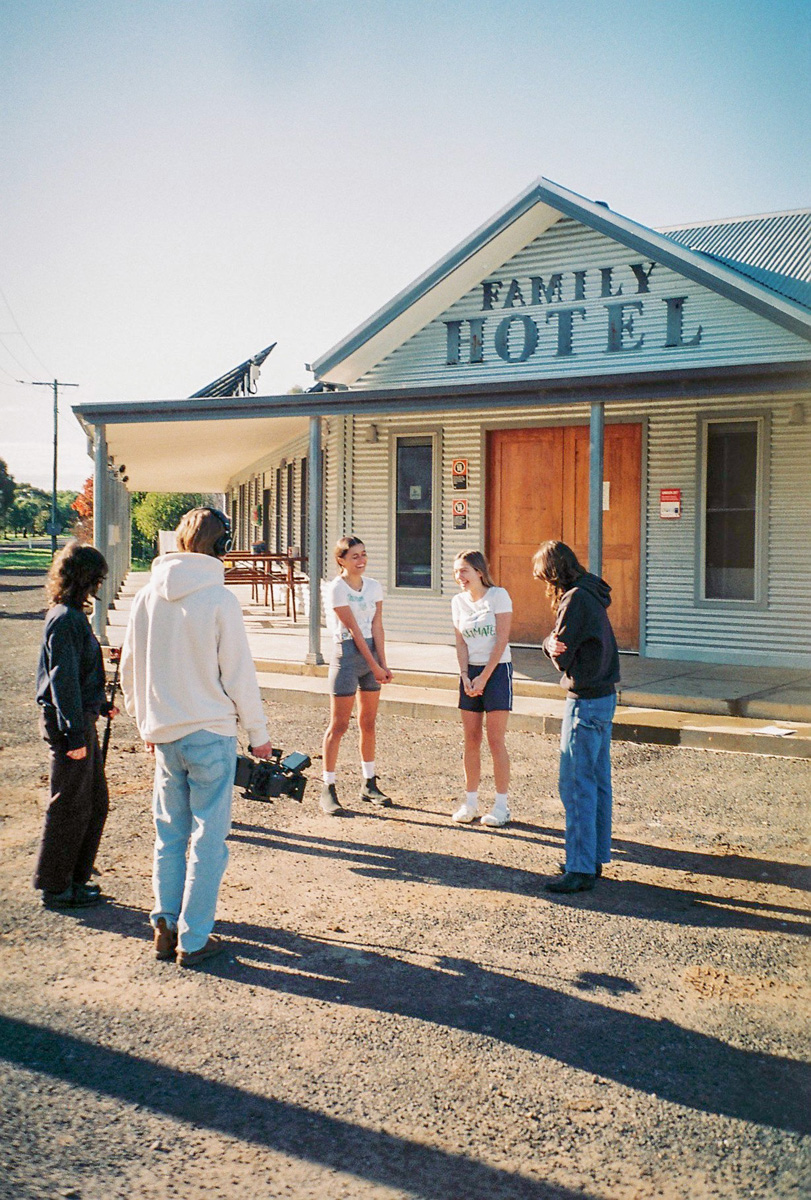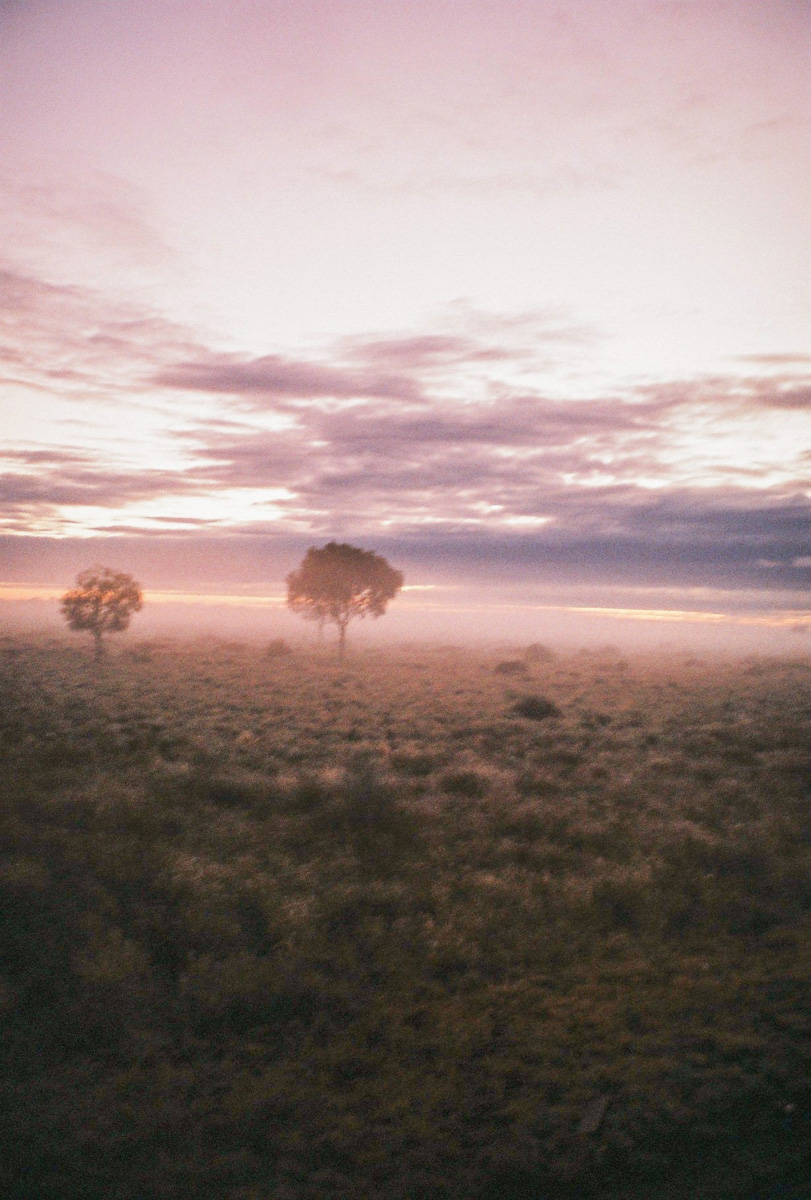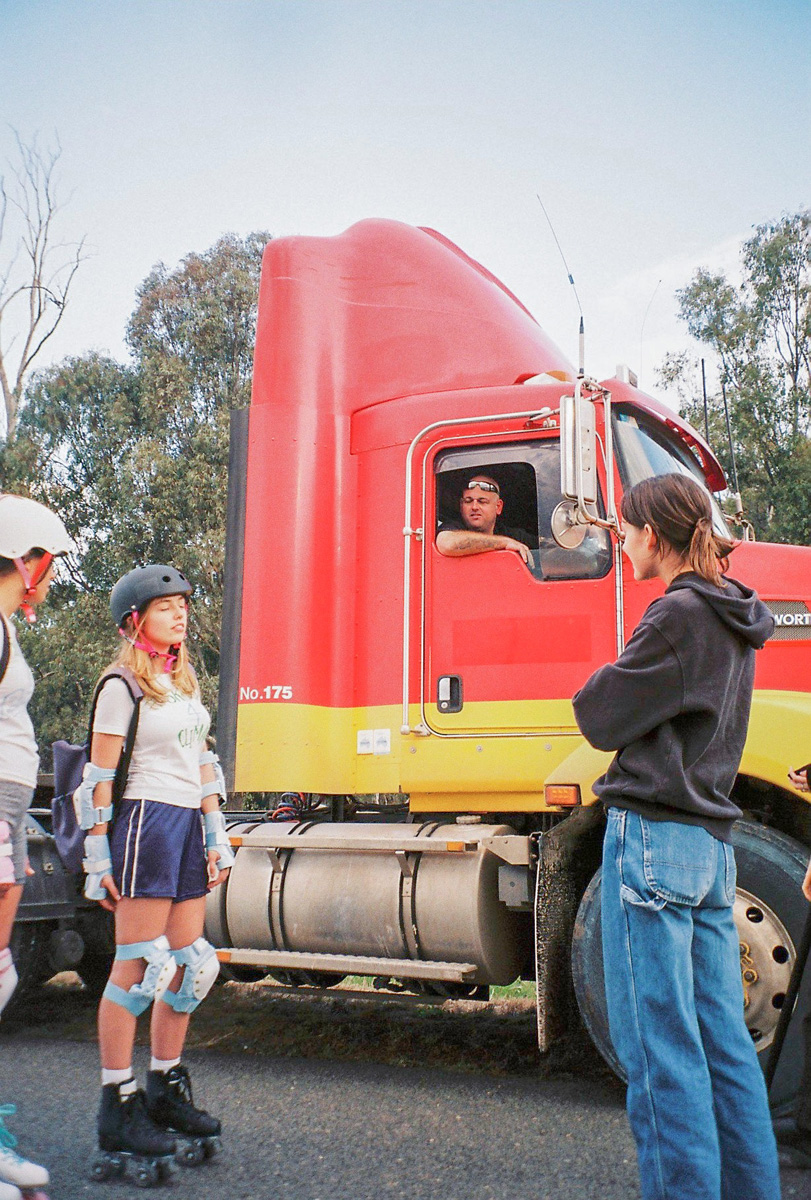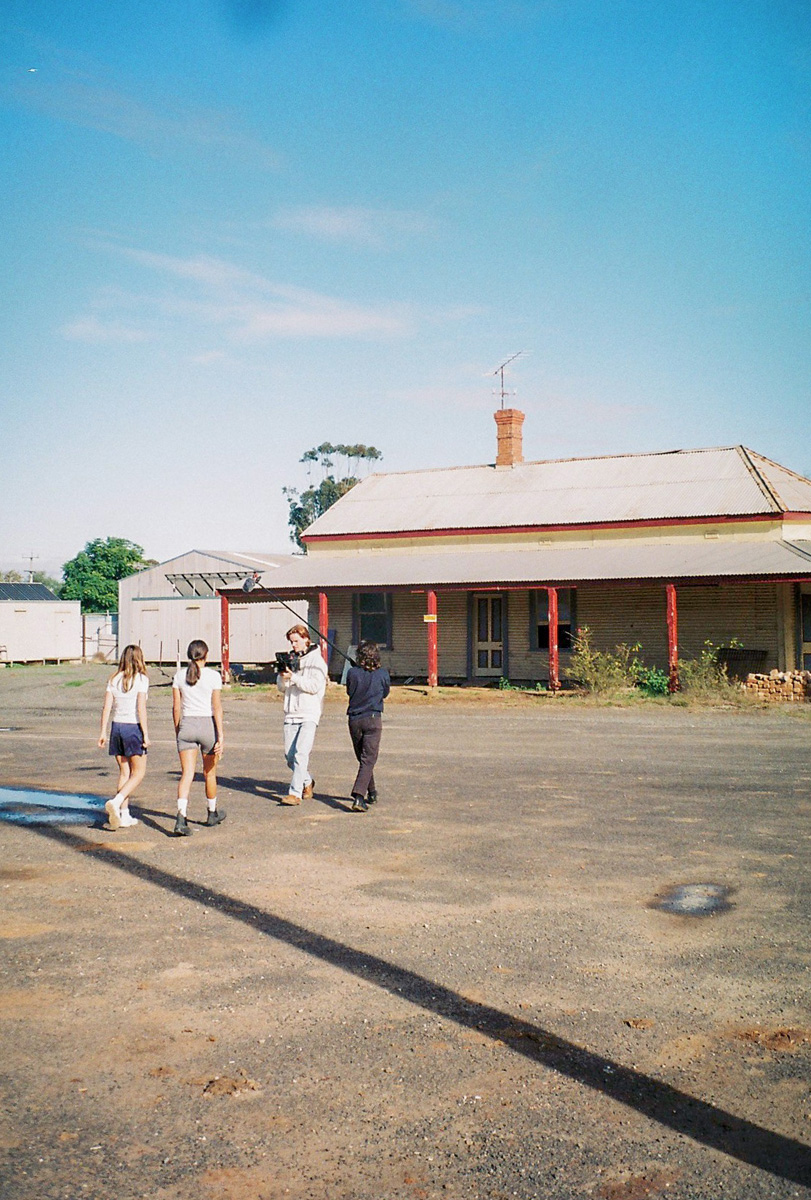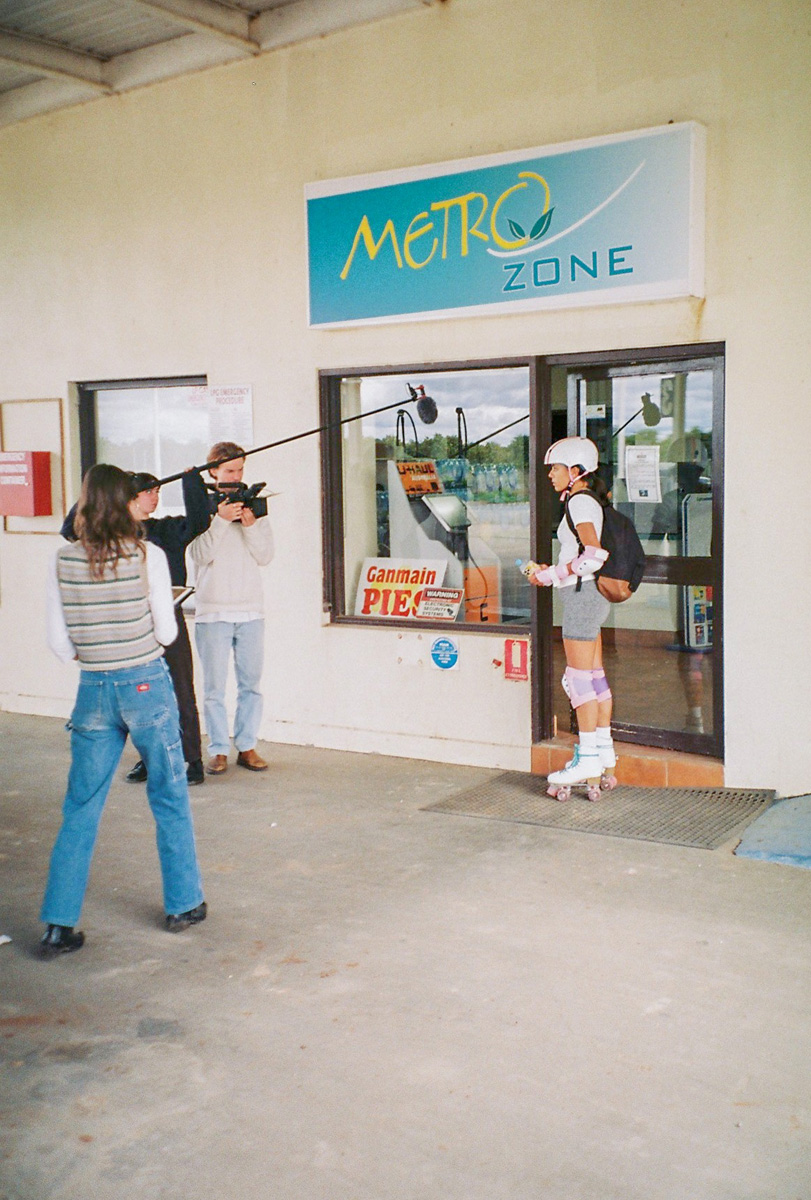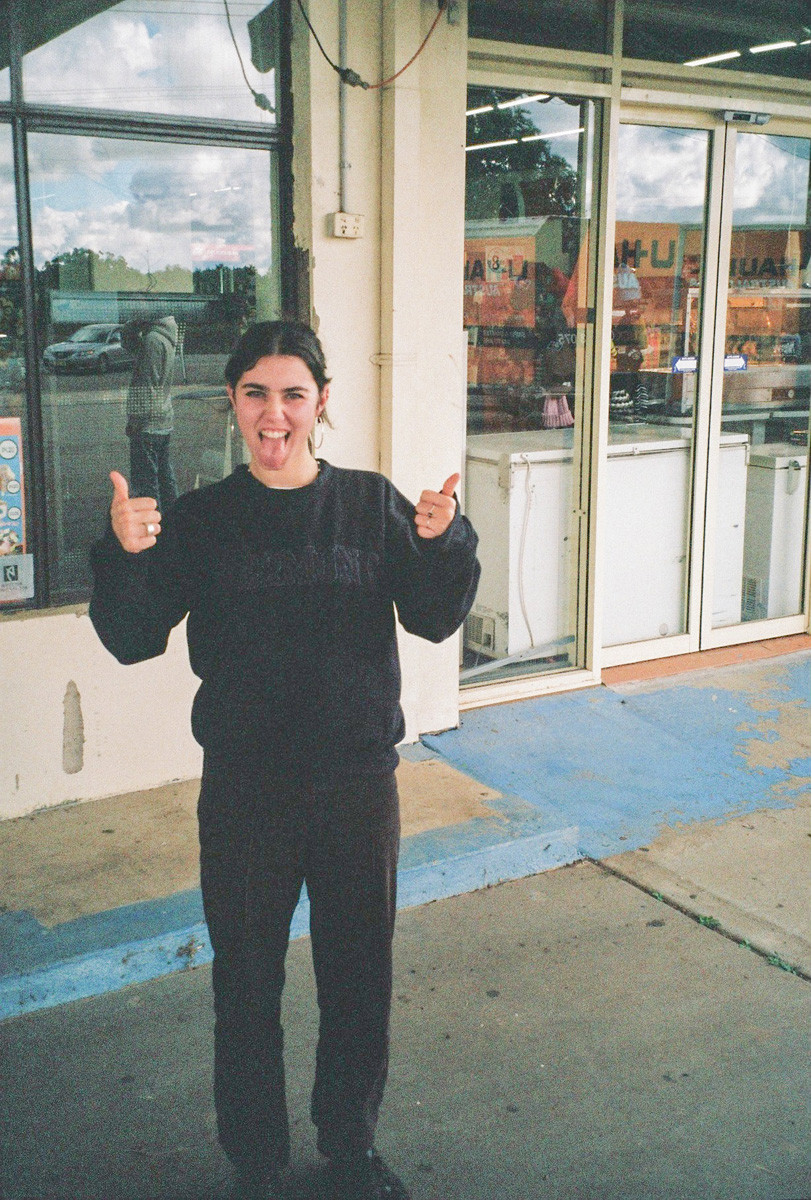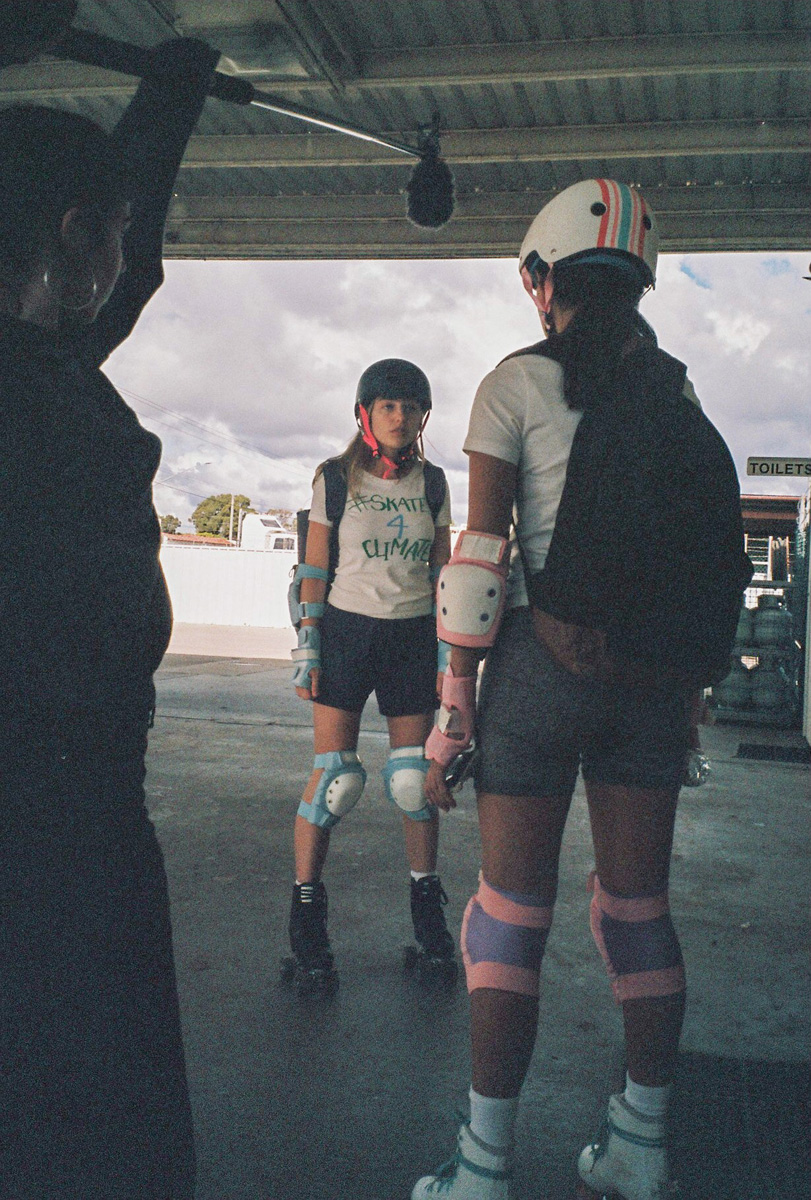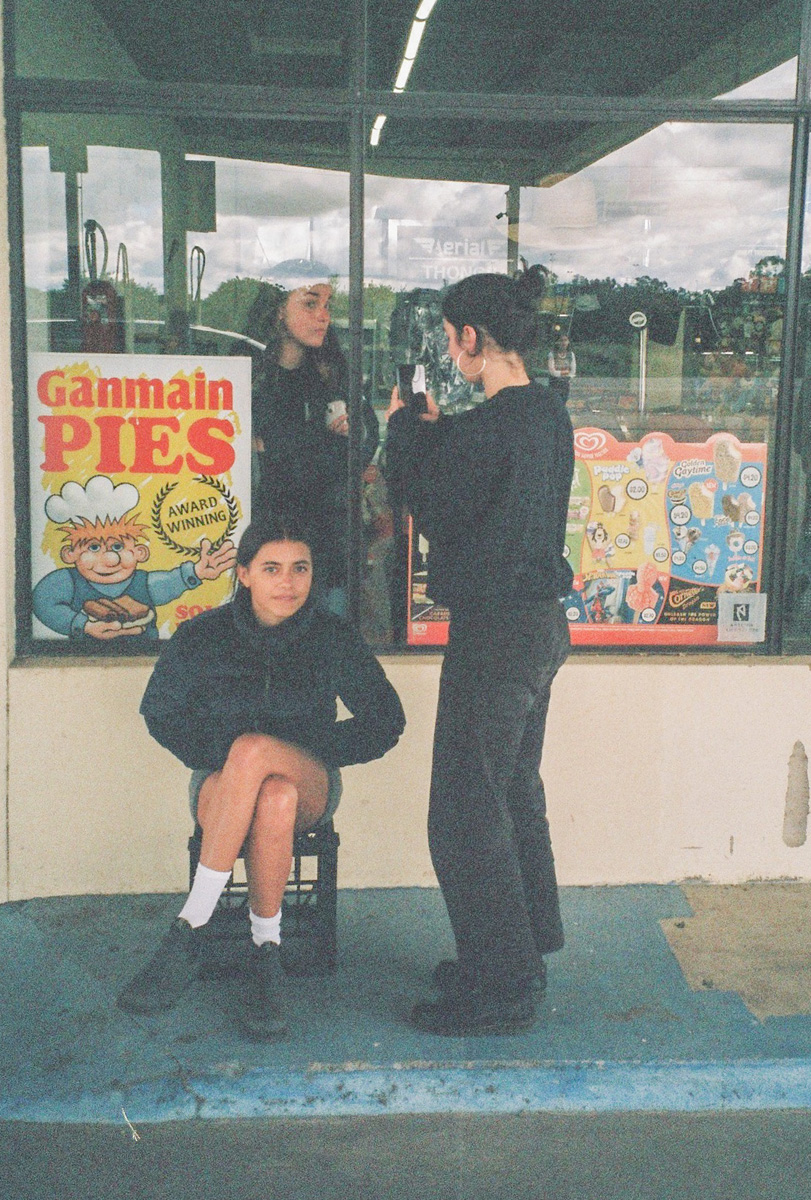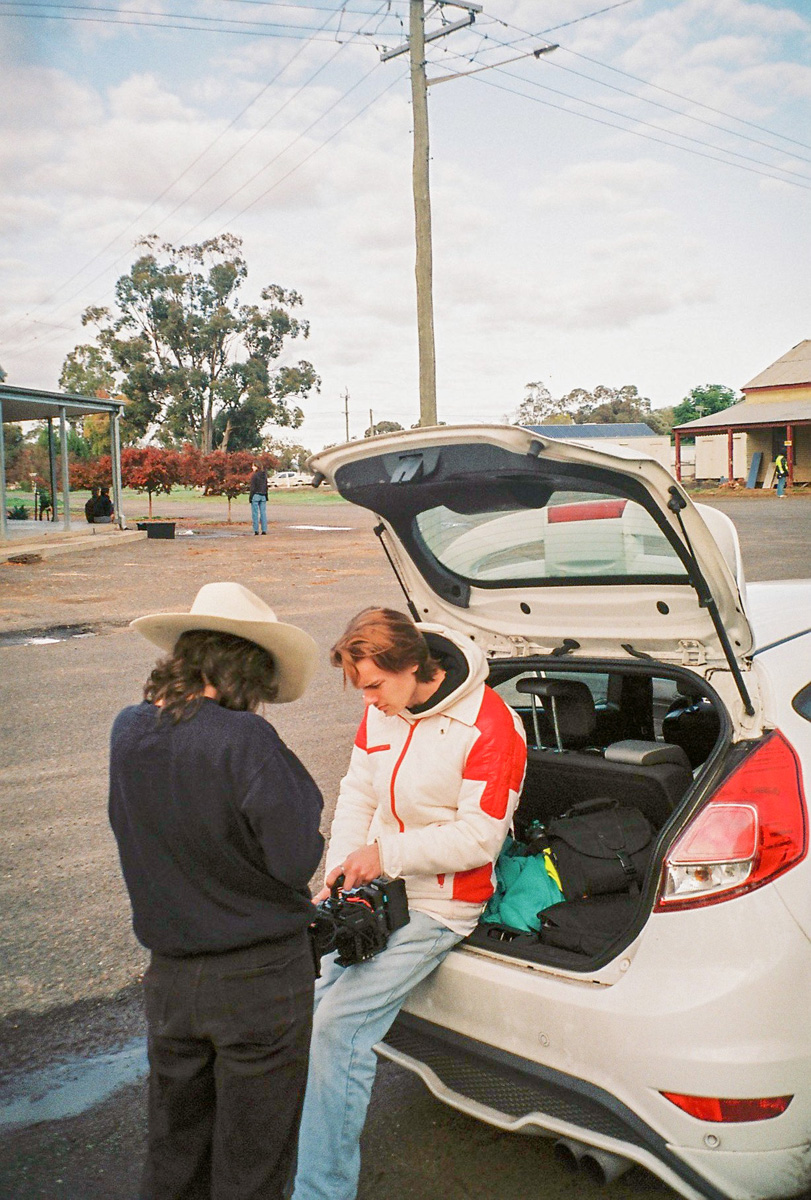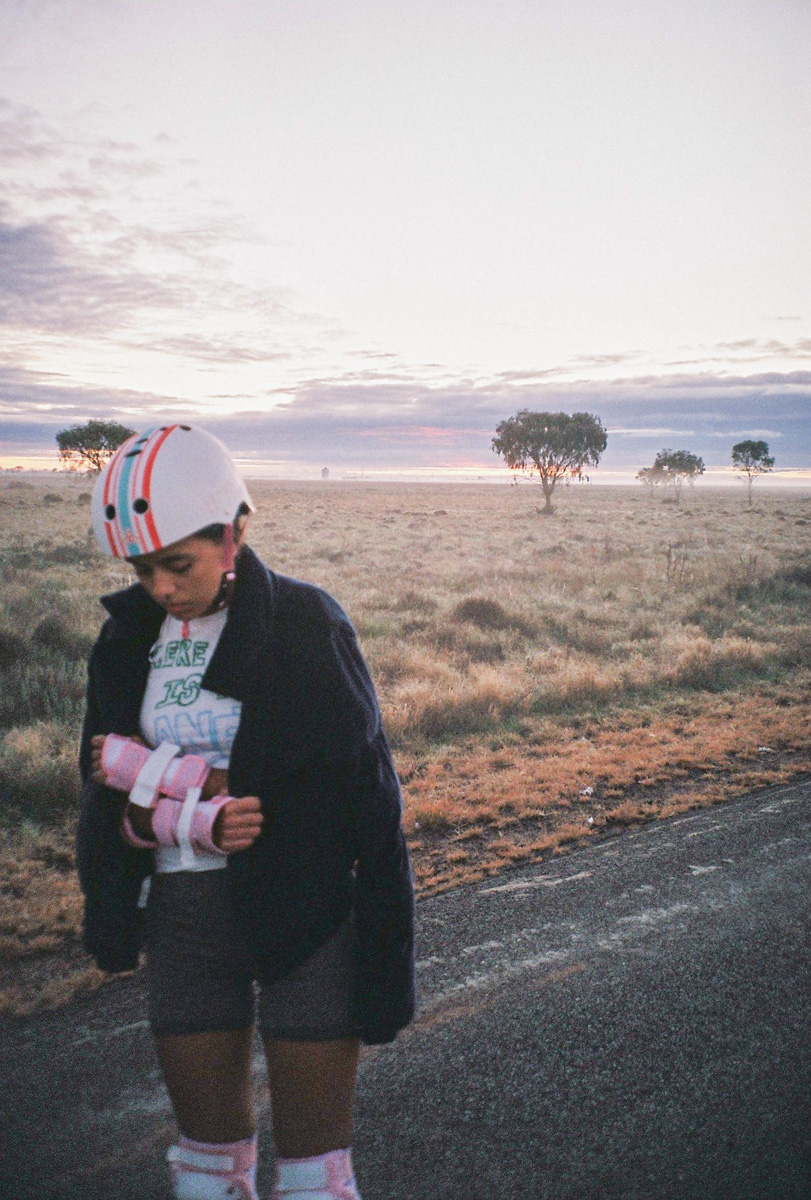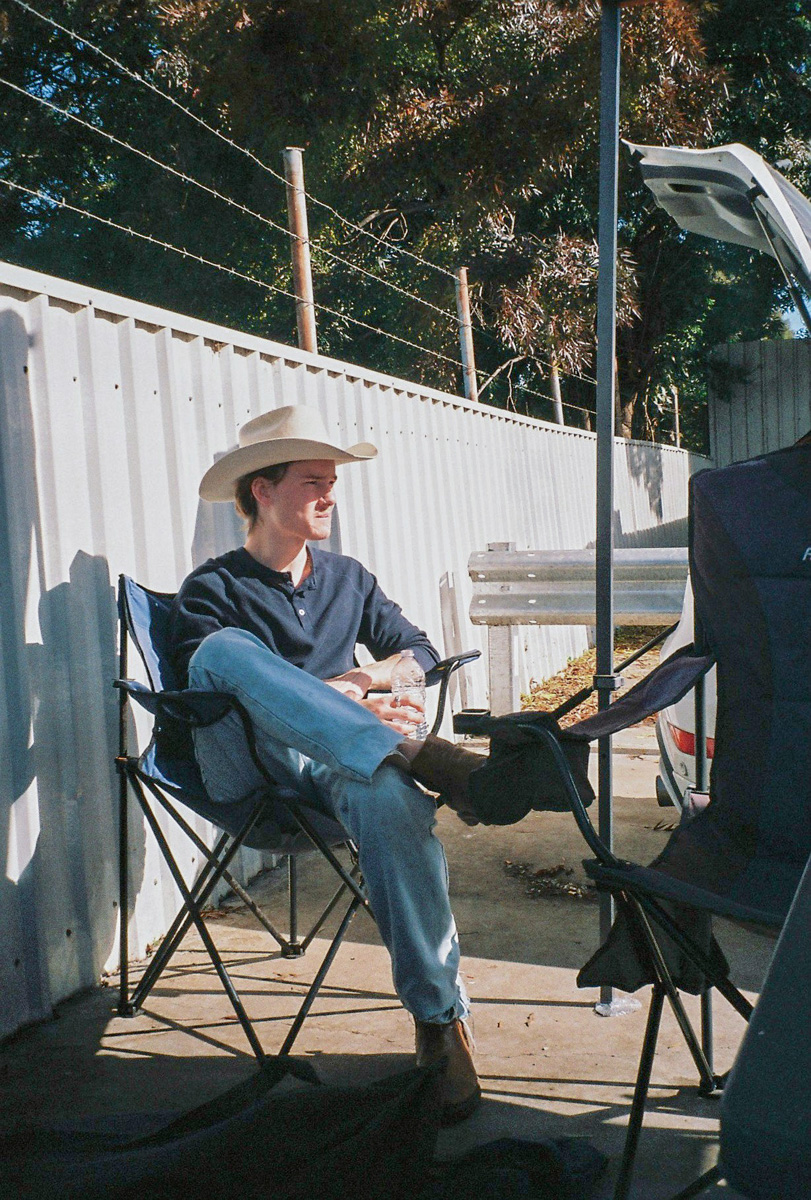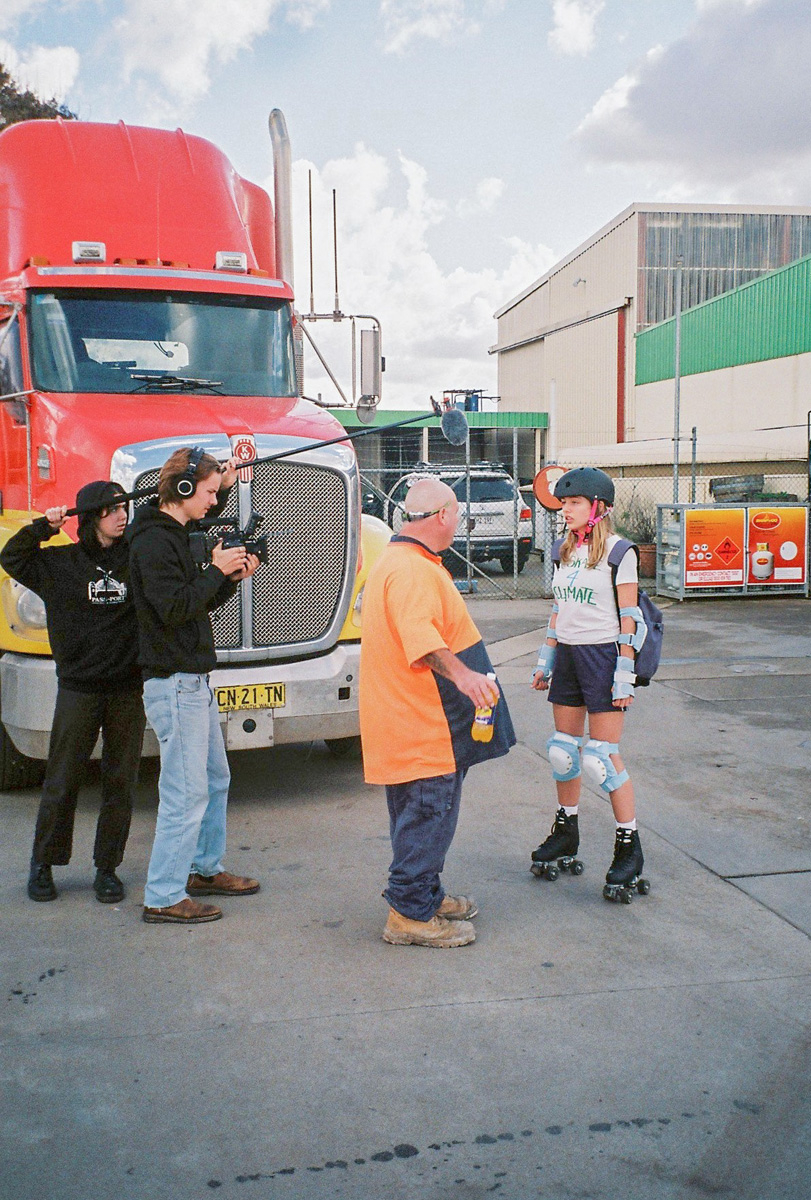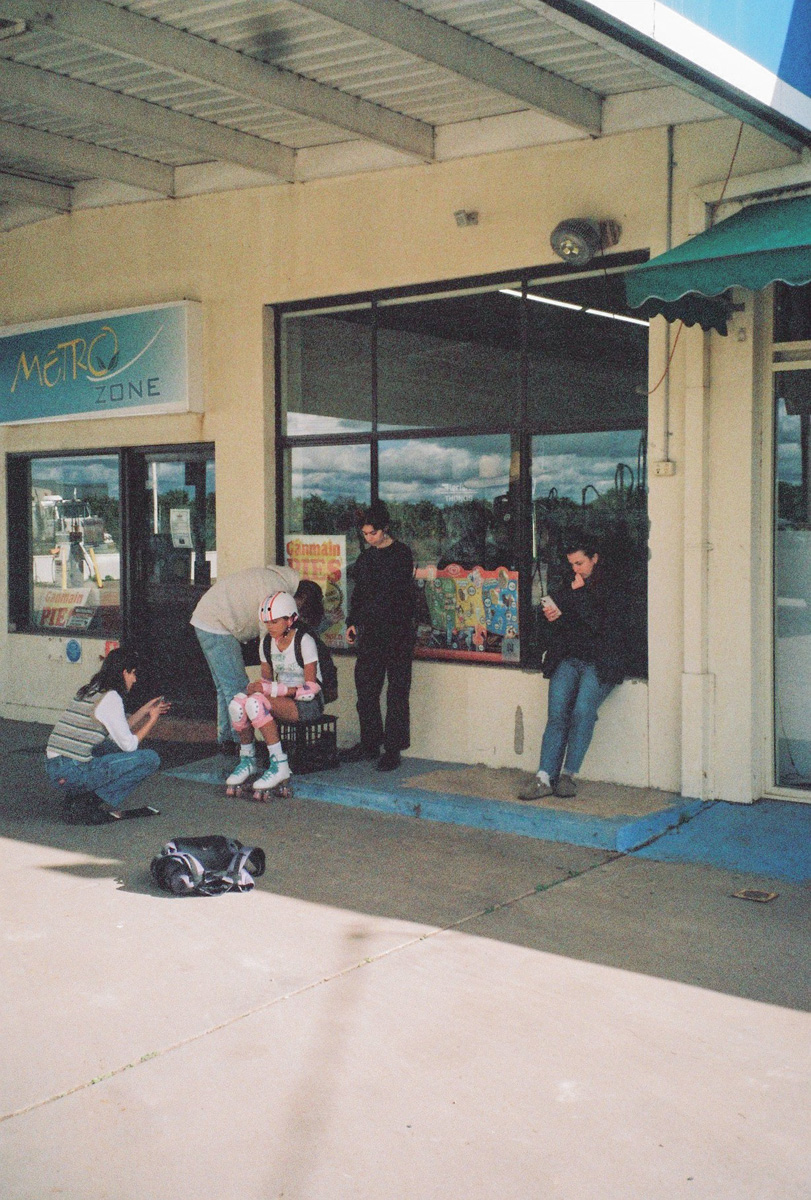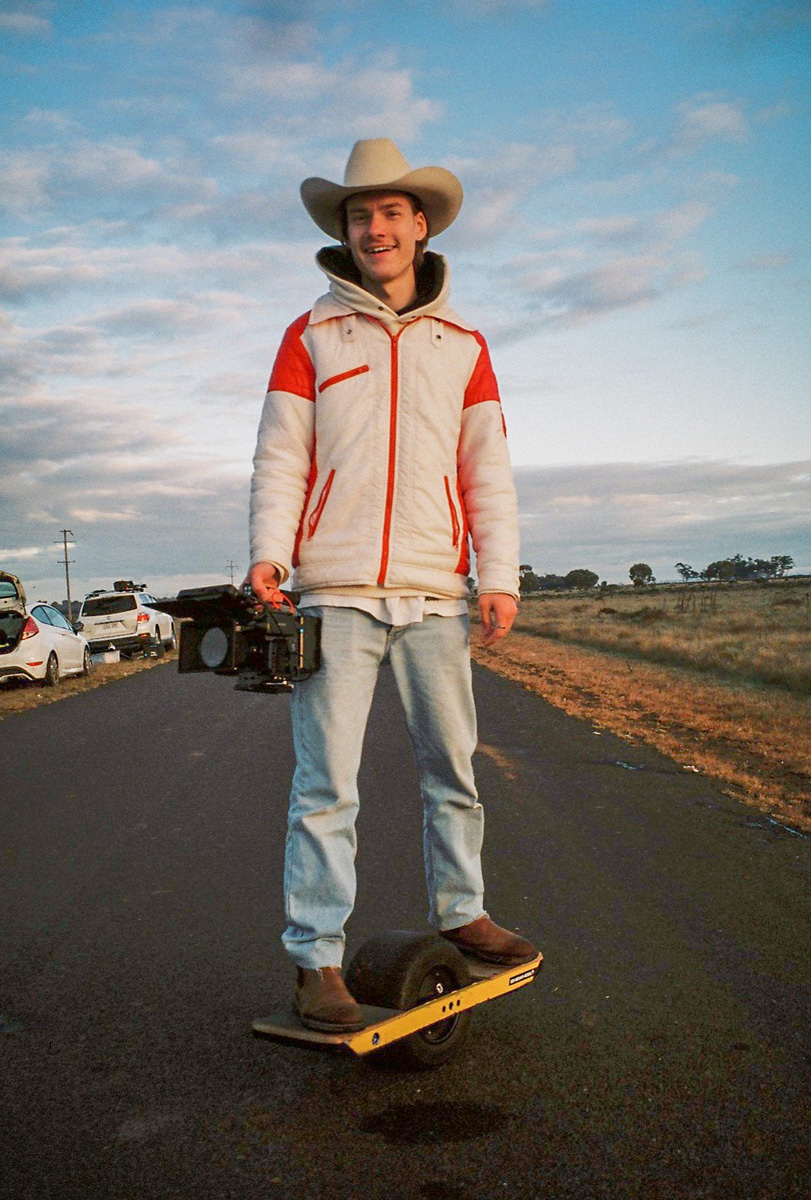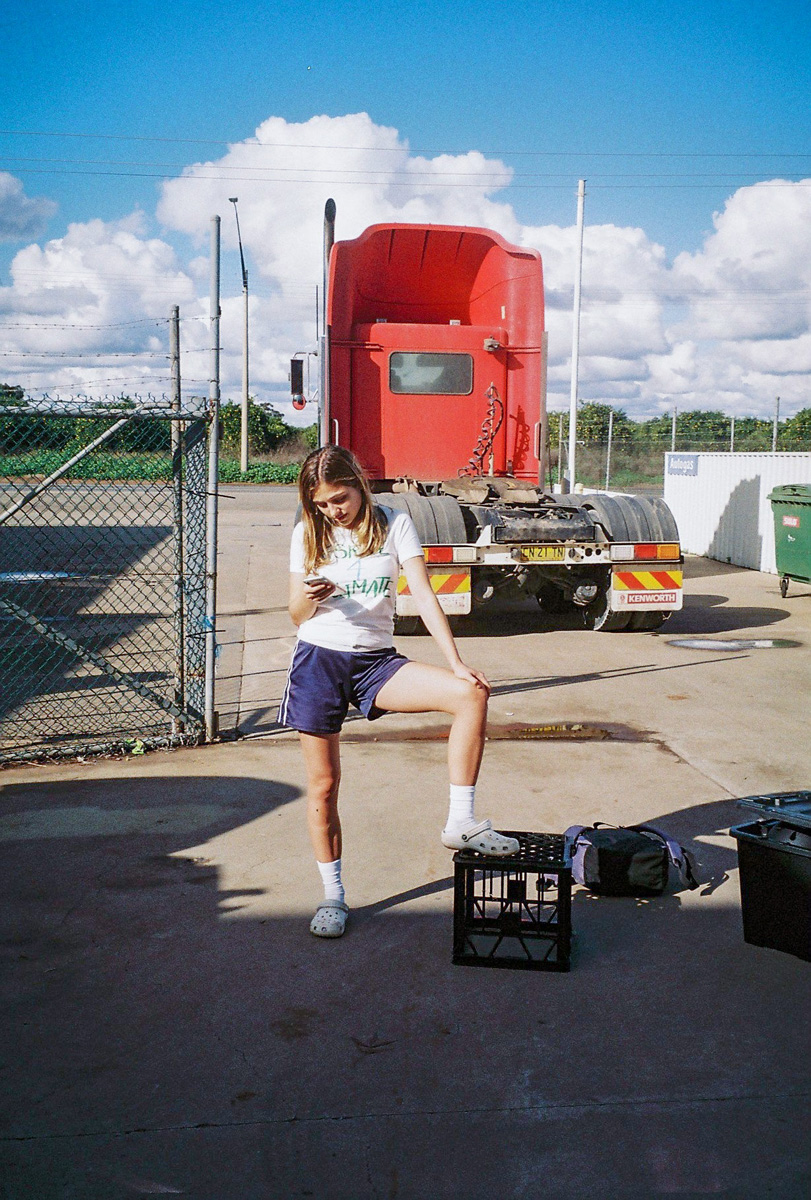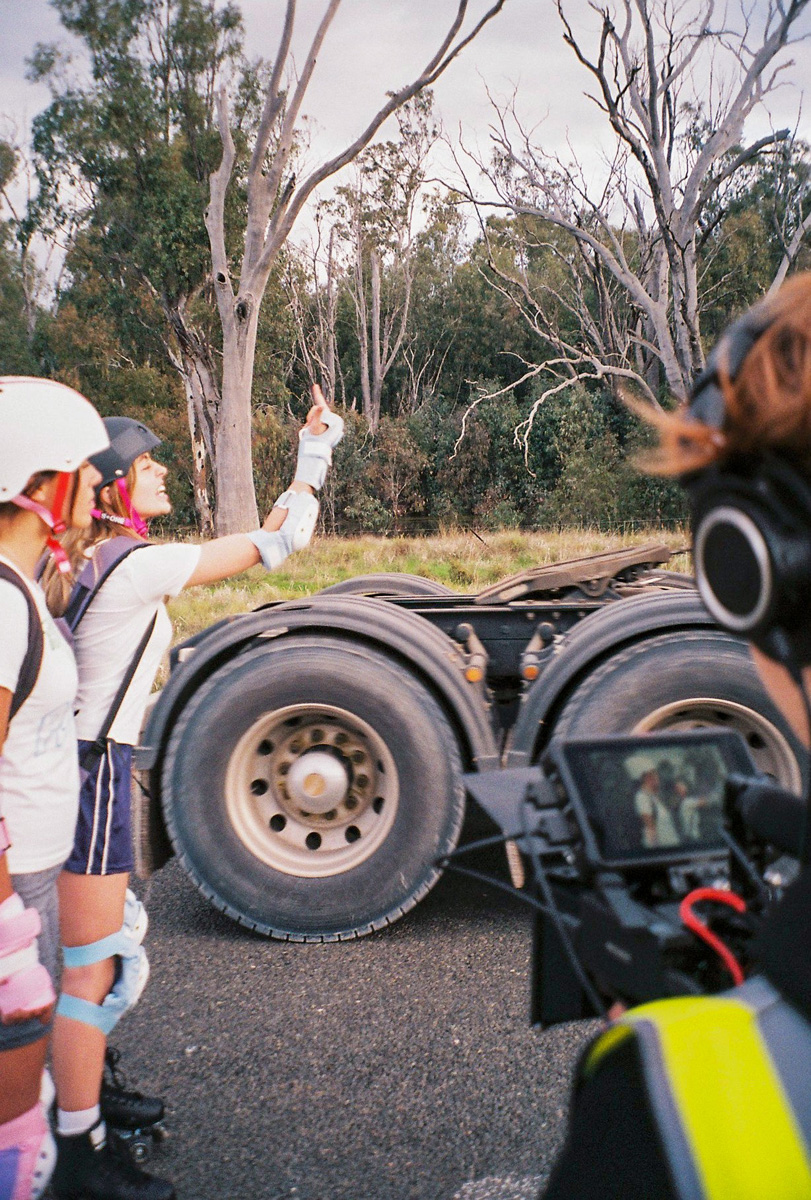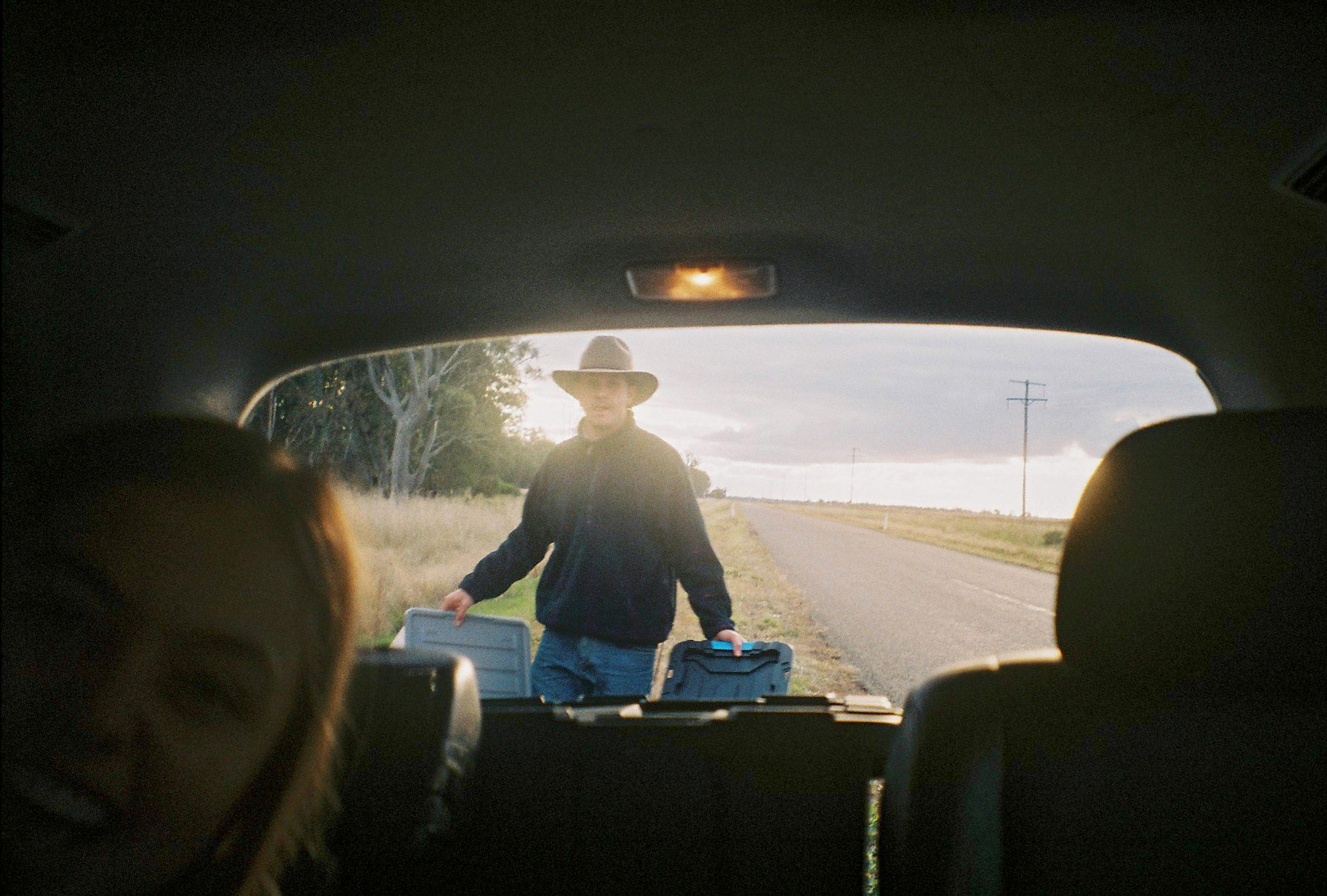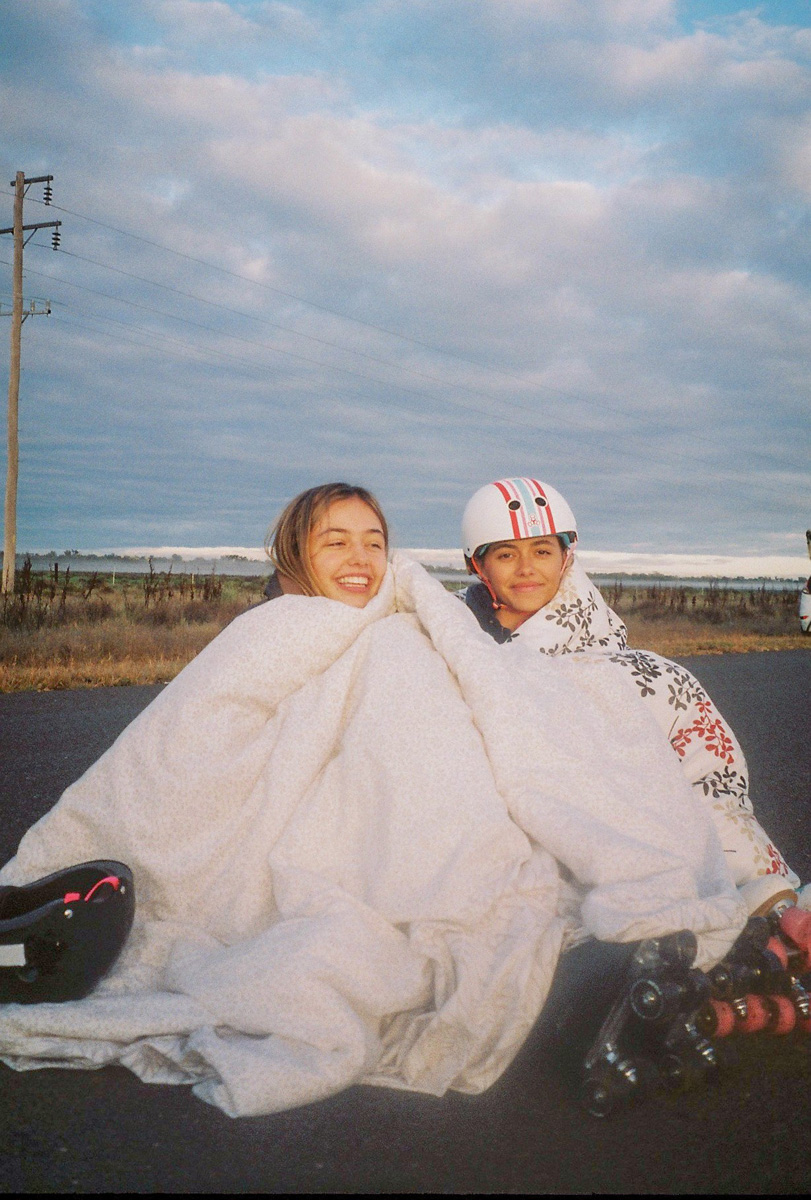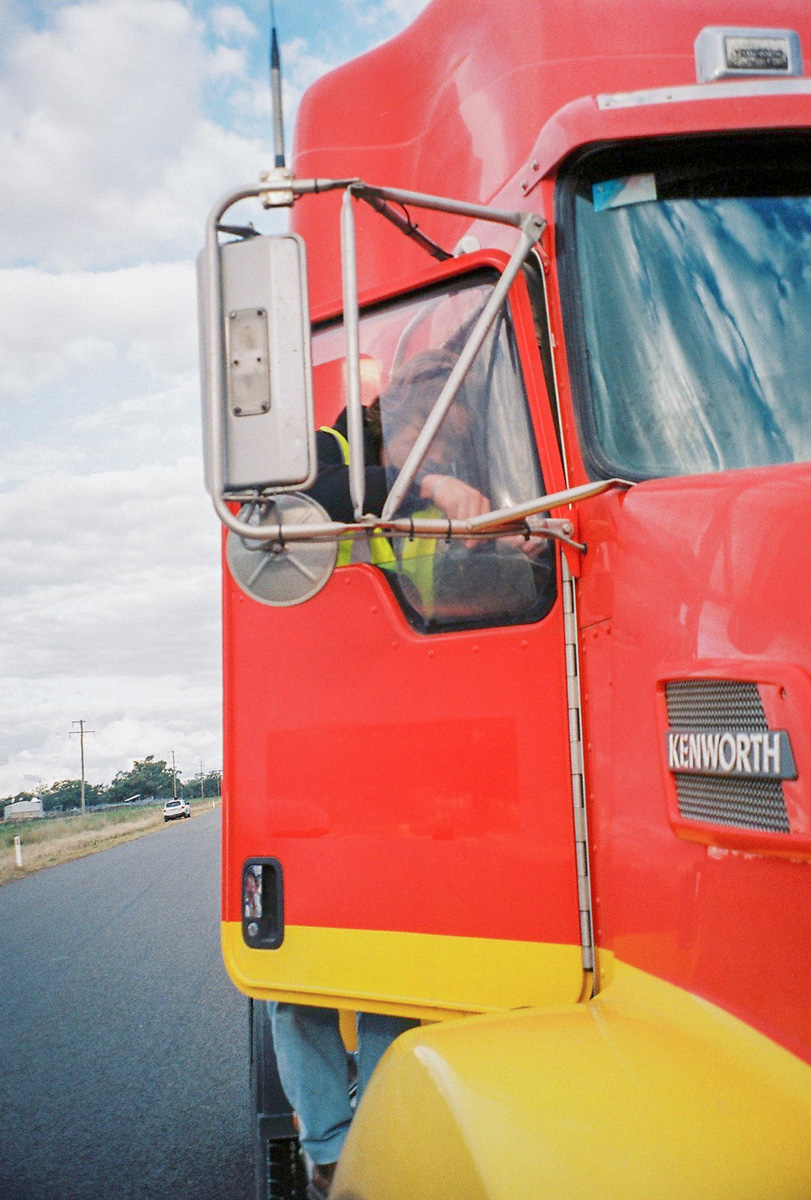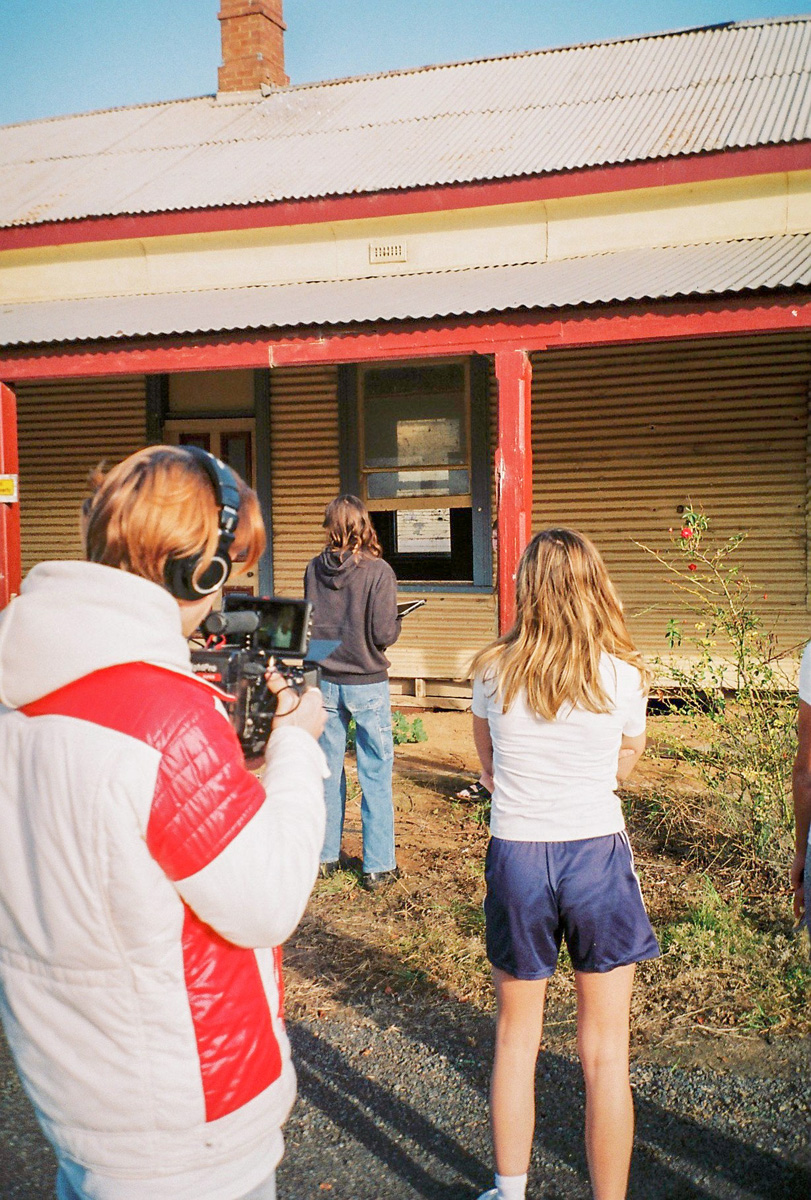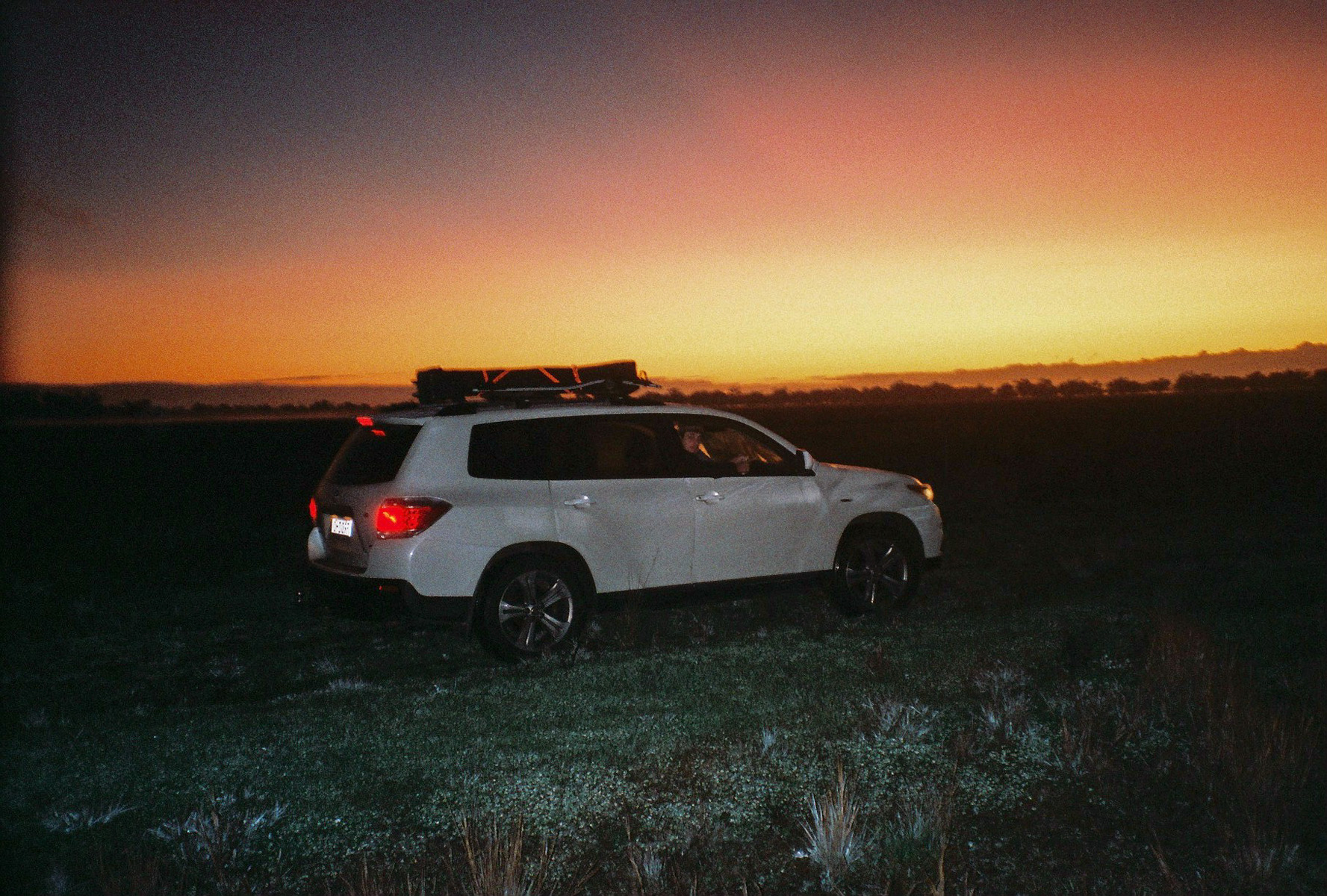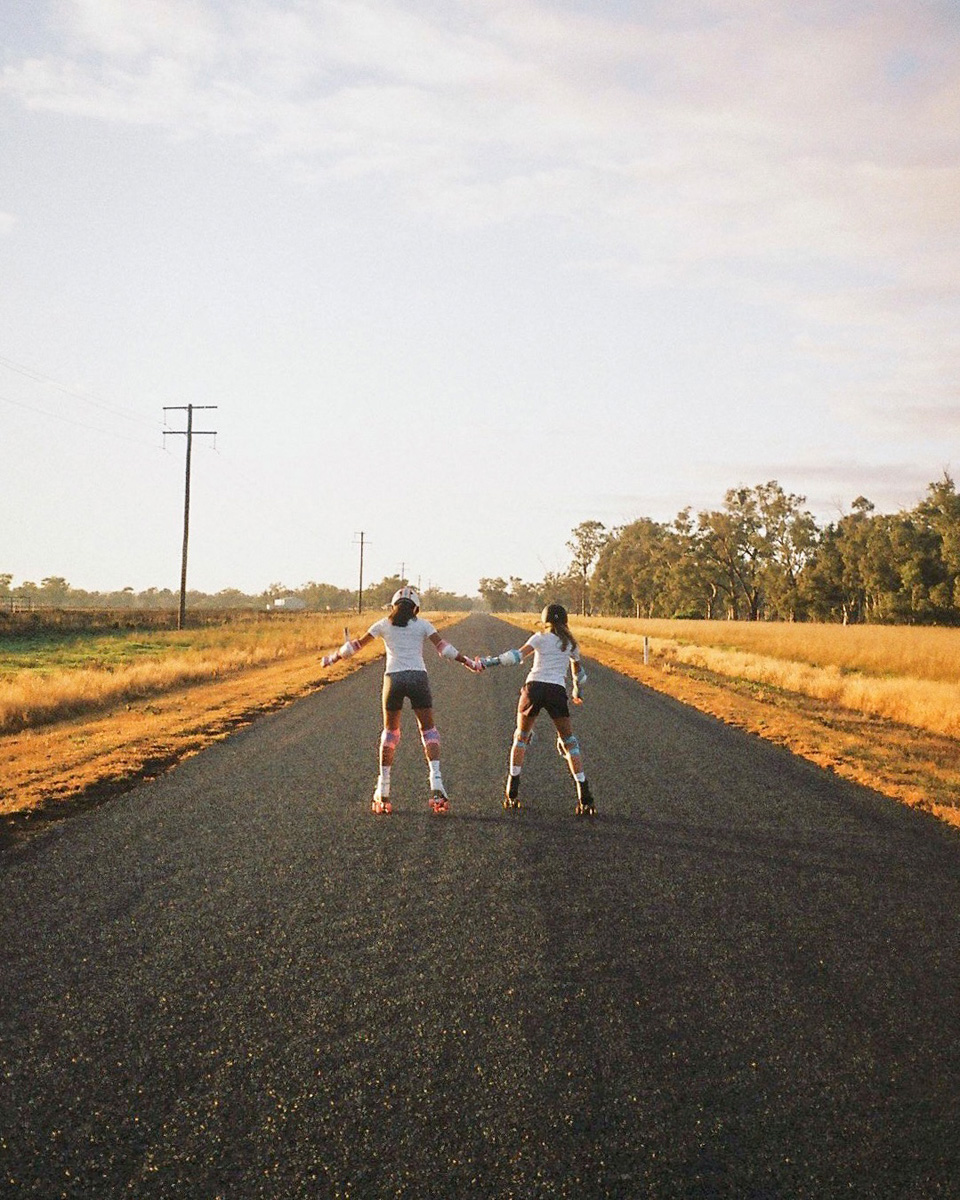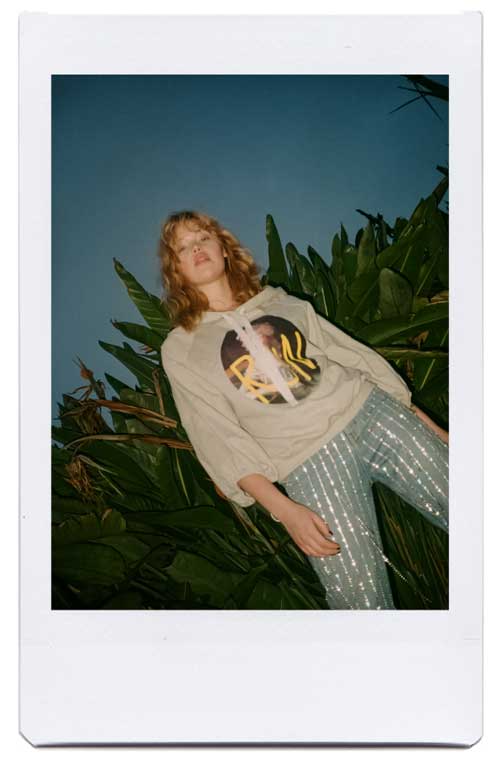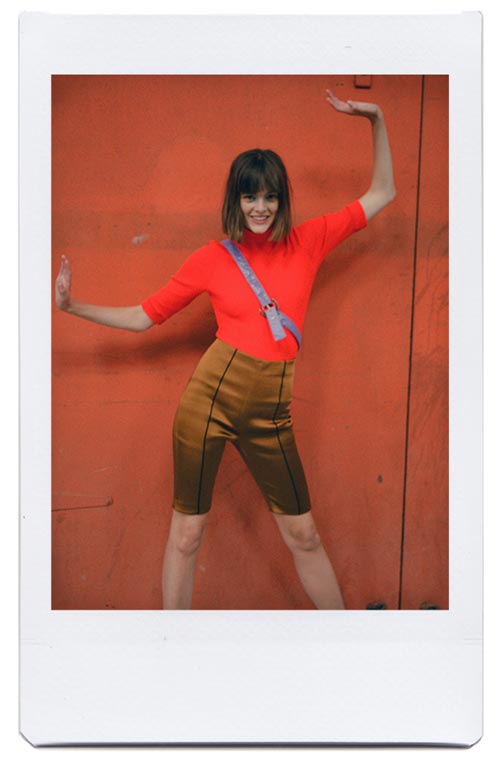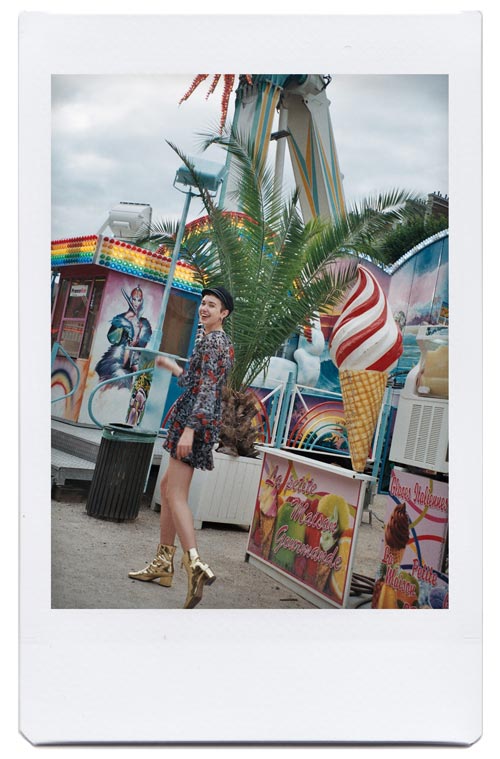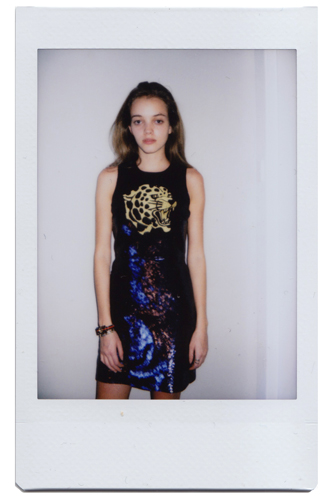We've had the immense pleasure of knowing multi-hyphenate Phoebe Wolfe for some time now — last year, she dashed around fashion week in Sydney, shooting most of our backstage galleries; she's known to shoot some of the coolest street style around, is an absolute pro behind a camcorder, and just last month she interviewed up-and-coming designer Rube Pedder for this very special CPC feature. You would think between shooting and writing, her schedule would be packed, yet somehow she managed to squeeze in a casual flex — writing and directing her very first short film.
The Overthrow tells the story of two young women on an emission-less journey to a climate change protest, across the outback, on rollerskates.
"[Climate change is] one of the most expansive problems in terms of its intersectionality with so many other global crises. As a young person, I found it really difficult to grapple with, particularly as the political discourse and campus culture at my uni were so binary and divisive. It didn’t make sense to me that such a complicated and layered issue could be simplified into two decisively opposed perspectives. At the end of the day, I wanted to understand it for myself and hoped that if I ever made the film, it would resonate with other young people."
Choosing rural New South Wales as the backdrop for her directorial debut was both a stylistic decision and a practical one. "The choices for the story and the visual style are very intertwined in this film. As I was writing the script, I knew I wanted to direct it, which is why I chose to set the film on a highway in rural NSW. The landscape is incredibly visually powerful and was almost a character in a sense. It meant that the film could be predominantly shot with natural light and handheld, prioritising flexibility with performances while also saving time and resources."
In the midst of The Overthrow touring Australia for the Flickerfest International Short Film Festival, aspiring filmmaker Elise Cautley sat down to chat with Wolfe. Covering everything from her creative process, stylistic influences, to the "expansive problem" that is climate change, and along the way, we got a bunch of tips for young creatives.
We also managed to nab some details about her next film project, "[My friend Eric Zac Perry and I] were having coffee one day when the idea to explore female sexuality in a Christian context came up, and it was really unexpected and inspiring to hear an idea resonate so deeply and early on. Since then, we’ve been working on the script and getting it into development."
While we're waiting on this next gem, get to know Phoebe and immerse yourself in her wise words below, then go BTS on the making of The Overthrow in the gallery above. Plus, if you're lucky enough, you might even be able to head along to one of the Flickerfest tour dates as it hits various Australian locations in the coming months!
What is your usual genesis of a film?
A lot of ideas come to me when listening to music or dreaming, particularly the moment right before I fall asleep. But I think my most meaningful ideas come from questions that feel unanswerable in an objective way.
What’s the first thing you do to nurture that idea? How does it become a story?
When the idea for The Overthrow first came to me, it emerged as two characters which meant there were different ways of thinking at play from the start. I feel like I’m in two minds about most things, so they’re both reflections of myself, in a way. It was interesting to follow their dynamic when writing, to probe their motives, ethics, and imbalances of power. As soon as I knew what they needed to overcome and the journey that could get them there, it was a story.
Do you then take an idea to a collaborator to develop together, or is it more of a solo process?
Writing, to me, has always been a very private process. Sharing that script with people for the first time was really exposing, but exciting. I find a really rewarding part of writing to be listening to other people talk about the world or say a line in their voice. At the moment, I’m working on a new film called Purity of a Woman with my friend Eric Zac Perry, a talented emerging producer. We were having coffee one day when the idea to explore female sexuality in a Christian context came up, and it was really unexpected and inspiring to hear an idea resonate so deeply and early on. Since then, we’ve been working on the script and getting it into development.
For ‘The Overthrow’, it seems as though the storytelling aspect drives the visual language. How early do you decide on how the visual style is intrinsic to the story?
The choices for the story and the visual style are very intertwined in this film. As I was writing the script, I knew I wanted to direct it, which is why I chose to set the film on a highway in rural NSW. The landscape is incredibly visually powerful and was almost a character in a sense. It meant that the film could be predominantly shot with natural light and handheld, prioritising flexibility with performances, while also saving time and resources. I worked closely with my friend Darwin Schulze, who’s an incredibly adaptable cinematographer. It was an absolute joy to skate up and down highways with him for three days, making things up as we went along.
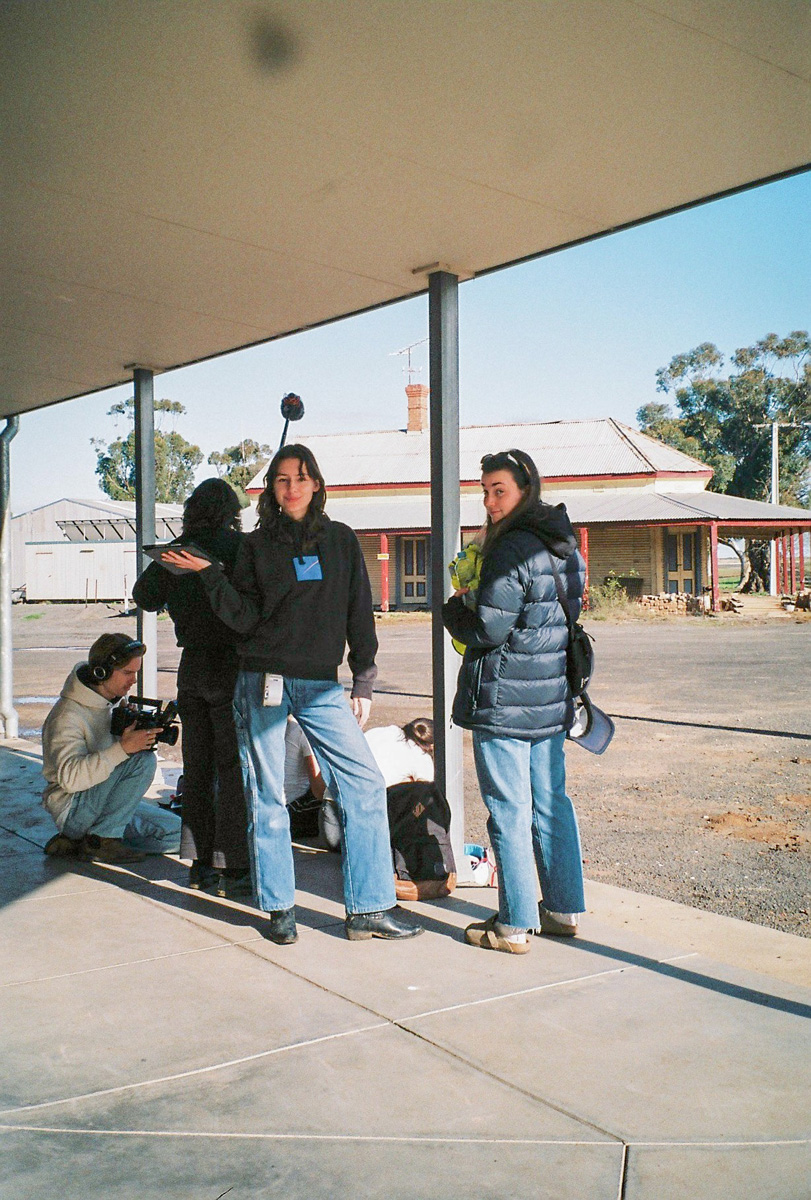
How do you begin assembling the rest of the team to make the film?
One person I will always turn to first is my sister Annabel Wolfe, an actor and close collaborator. She’s always the first person to read my work and provide unrequited support. In The Overthrow she plays Cleo and her best friend Miah Madden took on the role of Iris. As an emerging filmmaker, it’s so important to recruit your friends and call in favours from other creatives you’ve helped out. The only way you're going to get something made without a budget is by drawing upon the pure passion of other young filmmakers.
There are stylistic influences we can see in this film – Sofia Coppola, Agnès Varda, and Greta Gerwig. Did you have a particular auteur in mind when making this film?
That’s really cool that you can see that! They’re all incredible inspirations to me as writers and directors who have paved the way for me, particularly Agnès Varda. There are so many female filmmakers from the French scene that really informs my work, like Cèline Sciamma and Claire Denis. There’s a specific shot at the end of The Overthrow that’s directly inspired by a scene from Portrait of a Lady on Fire that took my breath away. I really love how those filmmakers don’t shy away from their femininity and subjectivity in their storytelling. I remember one of the first films that made me believe I could make films was Mustang by Deniz Gamze Ergüven, as well as Coppola’s The Virgin Suicides. I remember feeling claustrophobic watching these movies because I knew that those were the sort of stories I wanted to tell, and the visual style in which I wanted to tell it. From actor-driven directing to pace to the intimacy of the cinematography, the female gaze is so powerful to me.
What made you inspired to write about climate change?
I mean it’s one of the most expansive problems in terms of its intersectionality with so many other global crises. As a young person, I found it really difficult to grapple with, particularly as the political discourse and campus culture at my uni were so binary and divisive. It didn’t make sense to me that such a complicated and layered issue could be simplified into two decisively opposed perspectives. At the end of the day, I wanted to understand it for myself and hoped that if I ever made the film it would resonate with other young people.
What made you want to write about climate change through the journey of two teenage girls?
I chose to write through the lens of two teenage girls because not only was I wanting to draw from my own experience as a young female but I also thought that such an ambitious journey, like rollerskating across highways and camping overnight, was so unpredictable. In my time as an actor, I was always excited by female characters that were unexpected and subverted preconceptions of young women. I want more complex female-identifying heroes in Australian stories, from all backgrounds and experiences. So, as I write and step into the role of director, that mission is paramount to me.
I’d love to hear about your writing process. Are you a structured person when it comes to scriptwriting?
In the past, I’ve always been very unstructured in my approach to writing. Sometimes I’ll start a script that simply collates a bunch of notes on my phone that include scenes written before falling asleep, on public transport, or at other unexpected moments. Other times I’ve just let myself go to the world of the story, through music or other sensory escapes, and just let everything flood out. It’s been really fun to work with Eric Zac Perry on my next film as he applies his attention to structure like an archeologist, brushing away the dust until the skeleton is uncovered.
Are you a director of many takes, or do you prefer to give more agency to your actors?
On ‘The Overthrow’ I found myself to be a very performance-driven director which probably comes from my experience as an actor. I really enjoyed working intimately with Annabel and Miah to develop their characters, giving them both a lot of autonomy over the nuances of Cleo and Iris. I found that I preferred to prioritise intention and truth over script rigidity, which demanded a very flexible approach and productive rehearsal.
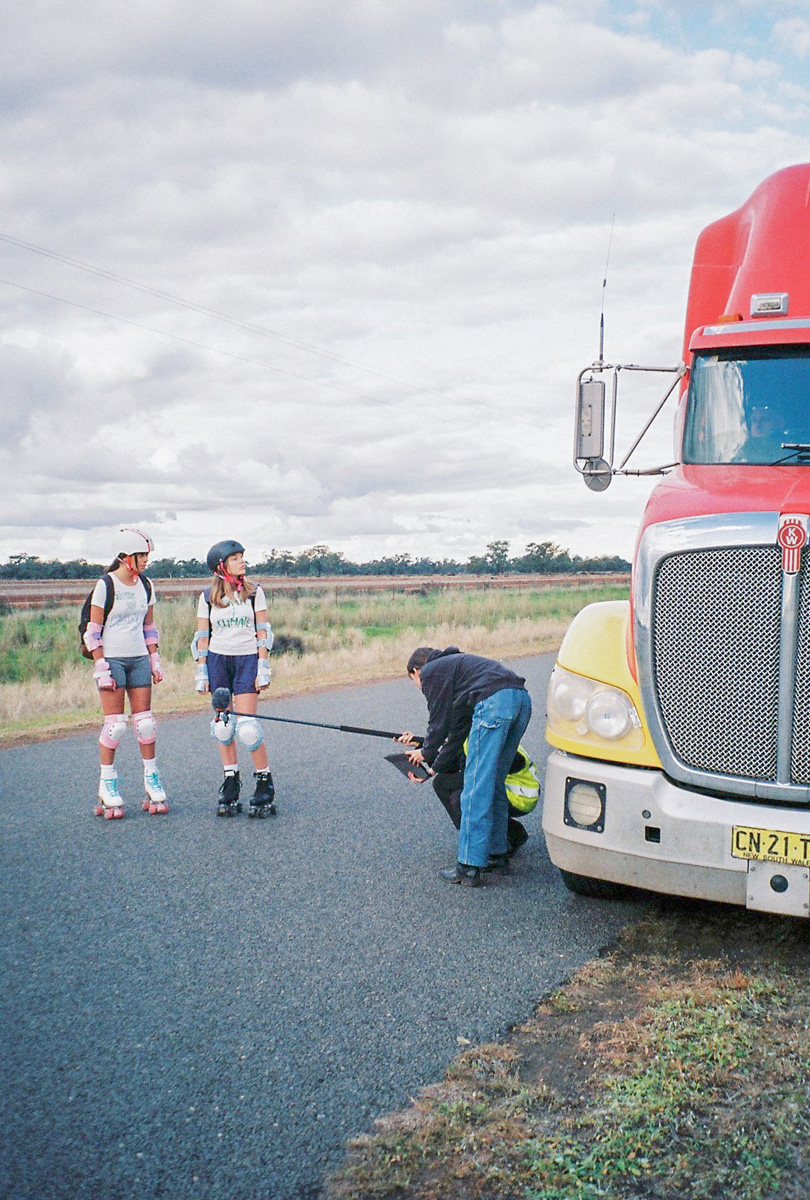
How do your other hustles influence your work as a director?
I became a videographer as a teenager to have more experience simply with a camera in my hand, to hone certain visual creative muscles. I had always been a very linguistic person, so I thought I needed to challenge myself in terms of visual language and creating powerful images. These hustles have definitely lent themselves to my eventual directing work, particularly in terms of collaborating with other creatives, meeting deadlines for clients, and other logistical skills.
Do you have a go-to outfit for on-set?
I suppose anything comfortable! That being said, I work a lot in fashion so something comfortable and chic like baggy jeans, a singlet, and a button-up over the top. Maybe a thrifted cashmere sweater slung to the side. I also wear Crocs a lot, controversially.
What’s a skill you think makes a great director?
I think empathy is an incredibly important and undervalued skill. If you’re a deep feeler, then you can make other people feel too, which is the point of movies I think.
What’s your favourite movie? Why is it your favourite?
Of all time, I would say my favourite movie is Ergüven’s Mustang, purely for how much it inspired me to make films myself, and how closely it aligns with my visual style. More locally though, I will forever love Warwick Thornton’s Samson and Delilah, I think he’s a genius and that film will always break my heart. My favourite movie of this year though would be Charlotte Wells’ Aftersun which technically I saw last year but again I felt painfully claustrophobic because of its resonance with my style and filmmaking intentions.
What do you think the best movie is? Does it differ from your favourite?
That’s an interesting question because, if so many marginalised identities have been excluded from cinema for so long, the objective concept of ‘best’ in this industry is pretty distorted. However, as recent awards shows reflect, I think this metric is changing and expanding to include more diverse stories that are considered ‘the best’ to some groups more than others. I think I tend to be drawn more to new filmmakers because of the way they subvert the traditional filmmaking playbook and create their own rules. It feels like that’s what’s opened the door for me to make movies, so in my eyes, they’re the best.
Interview: Elise Cautley
We acknowledge the Wiradjuri people of the Wiradjuri nation as the traditional owners of the land on which this film took place, and the Gadigal people of the Eora Nation as the traditional owners of the land on which this interview took place.

